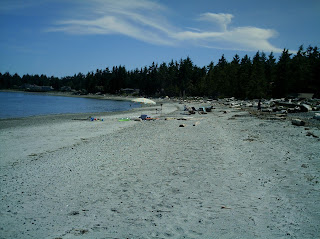With all that recreation, however, comes equipment. And if you are moving here to take advantage of the great outdoors, thinking about where you are going to keep your equipment is important.
Are you thinking of downsizing so you can spend time RVing? Then you need to have somewhere to store your RV. Coming here to fish on the ocean or lakes? Will you have a boat and if so, where will you keep it? Skis, ATVs, mountain bikes, kayaks - all need a place to sit when not in use.
Listings in this region should tell you if RV parking, extra outdoor space and good storage space is available. Most properties allow these types of outdoor items, although there are still some neighbourhoods that do not, so check if there are any covenants on the title restricting property use.
When you come to the area, come prepared to take advantage of all it offers and make sure your home allows you to easily access what you need. Whether that means a sturdy pair of walking shoes or a state-of-the-art RV beside the house is completely up to you!
It's a Coastal Lifestyle ... Live It!














